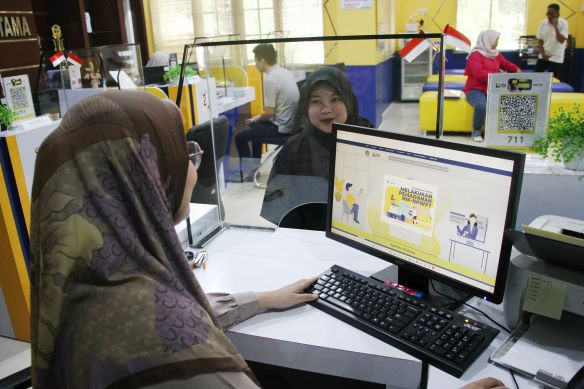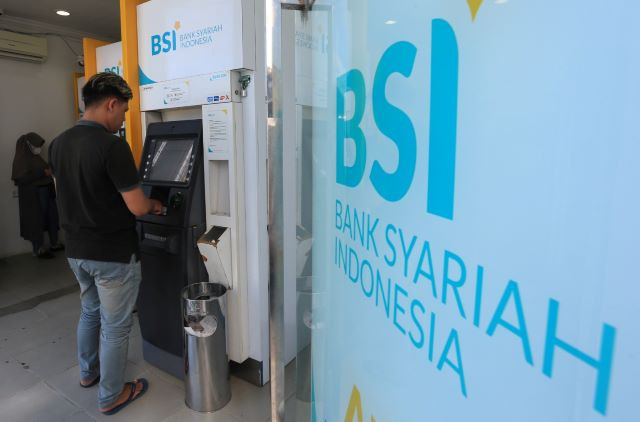Grassroots pedagogy: Anies Baswedan’s lasting legacy
Change Size
 Teacher's quality is important in education, minister says. (Shutterstock/-)
Teacher's quality is important in education, minister says. (Shutterstock/-)
T
o everybody’s dismay, former culture and education minister Anies Baswedan, also a former rector of Paramadina University, was among those ministers replaced by President Joko “Jokowi” Widodo in the recent Cabinet reshuffle.
Anies was replaced by Muhadjir Effendy, former rector of the University of Muhammadiyah Malang and a Muhammadiyah-affiliated figure.
Despite having made no significant educational breakthrough during his administration, Anies has left an exemplary legacy to teachers and schools nationwide: grassroots pedagogy — the pedagogy of engagement with the grassroots (teachers and students) who have long been sidelined because of the highly centralistic bureaucratic system.
Anies’ continual engagements with teachers and students made him familiar with the practical hitches faced by the grassroots. It thus comes as no surprise that his policies were made from the ground up, accommodating down-to-earth matters related to what teachers and students encounter in their daily practices.
An education expert and practitioner himself, Anies knew perfectly well that the goal of elementary and secondary education is not solely the pursuit of intellectual excellence, but is more importantly to help students develop dignified characters.
Most of the educational policies issued during his administration were aimed at developing students’ critical practice rather than merely their critical thinking.
While the former stresses the importance of affective aspects, social sensitivity and the positive character-building of the students, the latter exclusively emphasizes reasoning and is thus cognitive-oriented.
Quite interestingly, whereas most educational models adopted by his predecessors tended to extol rationalism, Anies opted for an educational model that is grounded on social orientation.
Students’ affective aspects and character-building become central in his policy.
It is still fresh in our minds that through his Ministerial Regulation No. 23/2015, schools nationwide were obliged to allow their students to spend at least 15 minutes prior to the start of class participating in a free-reading activity.
This in-class reading activity was initiated by Anies because he believes that free reading instills positive traits in schoolchildren.
What is really unfortunate is that Anies’ free reading program was short-lived. Instead of allowing and assisting their students to read for pleasure, many teachers were hard-pressed to catch up with the teaching materials needed to fulfill the targets required by their school syllabi.
Apparently, despite the immense pedagogical benefits offered by the free-reading program, not many teachers understood that the program also encourages students’ self-esteem and attitudes toward school.
Empirical research has shown that pleasant in-school activities the students enjoy correlates positively with their self-esteem, confidence and attitude toward school.
Prior to being appointed a minister, Anies was a noted figure in education. He was known as the brain behind Gerakan Indonesia Mengajar (GIM), the Indonesia Teaching Movement, a movement that promotes inclusive education in the country.
Through this national program, he managed to recruit, train and send young graduates to teach in remote regions in Indonesia.
The newly appointed minister must make sure that free-reading activities are part of every schools’ program. It is advisable that they be included in the school’s curriculum. Amid the high academic expectations of students, reduced pleasant activities like in-school pleasure reading may hinder students’ emotional and social dimensions.
At the macro level, Muhadjir needs to sustain Anies’ vision of providing access to equal education to children, especially those living in poverty in remote regions. He ought to ensure that these children get quality education and access to educational infrastructure, such as proper school buildings and well stocked libraries.
This is especially important because a literacy crisis has been considered prevalent in remote regions untouched by the government’s programs of equal education. In fact, it has been cited by many as a pressing problem that needs an immediate solution.
People earnestly hope that issues related to character building through literacy development and equal access to education will be parts of the new minister’s educational program and, more importantly, his policy will bring fresh winds of change for the improvement of quality elementary and secondary education in the country.
___________________________________
The writer teaches in the English Department, School of Education and Language, Atma Jaya Catholic
University, Jakarta.









